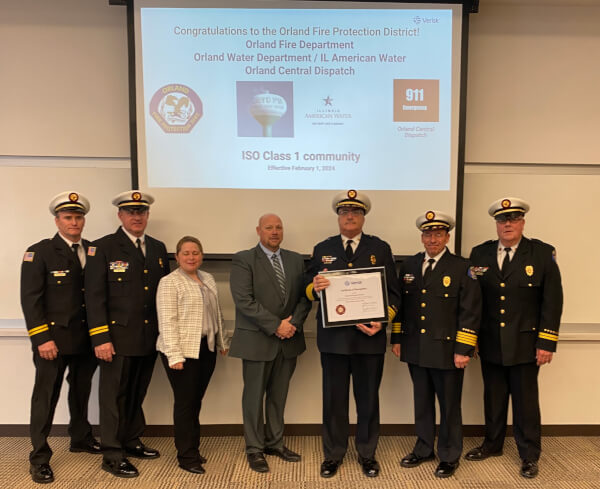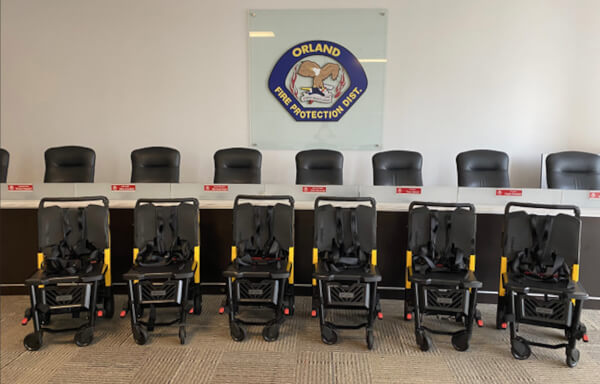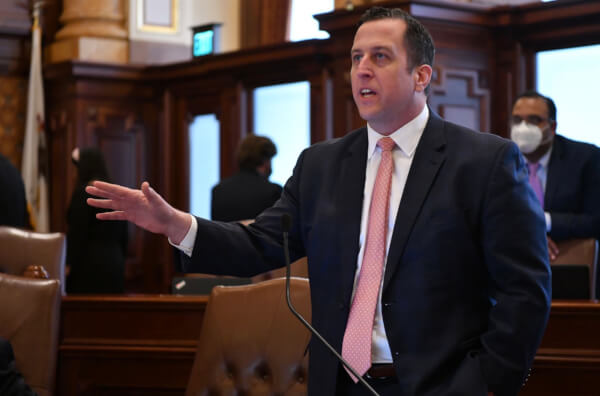Lipinski Introduces Bipartisan Legislation to Bolster U.S. Leadership in AI Research
Congressman Tom Reed (NY-23) signs on as GOP co-lead on $1.6 billion research initiative.
Congressmen Dan Lipinski (IL-3) and Tom Reed (NY-23) on Wednesday introduced the Growing Artificial Intelligence Through Research (GrAITR) Act to establish a coordinated federal initiative aimed at accelerating AI research and development for U.S. economic and national security. The legislation would provide a guide map for harnessing U.S. research into AI technology, which has the potential to transform the way we make decisions through machine learning.
“Right now, we are in a race to build effective AI that can be developed and used here in America,” Lipinski said. “Investment in AI is critical as we embrace new technologies like autonomous cars, algorithms for disease diagnosis, and speech recognition. We already have some of the best scientists and engineers in the world working to come up with better algorithms to power AI devices, but we need a long term, coordinated plan with a commitment of the necessary resources. This legislation helps us get there.”
The GrAITR Act, H.R. 2202, would create a strategic plan to invest $1.6 billion over 10 years in U.S. research, development, and application of AI across the private sector, academia and government agencies, including the National Institute of Standards and Technology (NIST), the National Science Foundation (NSF), and the Department of Energy (DOE). The strategic plan would help the U.S. catch up to other countries, including the UK, who are already cultivating workforces to create and use AI-enabled devices.

“We care about harnessing the tremendous potential AI has to transform and improve our economy,” said Rep. Reed said. “There is no doubt the time to invest in this technology is now as we continue our work to hold onto the crown as the world’s leading innovator.”
The legislation would also create an advisory committee of non-governmental AI experts who will provide input about the current and future state of AI and AI technologies, and will assist in evaluating the AI Initiative’s success.
The GrAITR Act has the endorsement of several stakeholders, including the Center for Data Innovation.
“The future of U.S. competitiveness in AI will depend on how effectively policymakers support key inputs for innovation, particularly R&D,” said Joshua New, senior policy analyst. “Thus far, efforts to support AI R&D have been lackluster. The GrAITR Act provides clear, concrete steps for the federal government to take to accelerate and strengthen AI R&D.”
Coordination of AI-related science and technology across federal government agencies would be multi-faceted: NIST would create standards to evaluate the algorithms behind AI-enabled technology; DOE, with its world-class national laboratories, would build next-generation computing systems to help AI learn faster from ever-larger datasets; and NSF would fund multidisciplinary research centers to study the basic science of AI and its effects on our society. The NSF will also develop AI education programs for students young and old at every career stage, including retirees.
“This legislation would help make sure that everyone is prepared for our AI-enhanced future,” Lipinski said. “Just last month I visited Argonne National Laboratory in my district for an announcement about Aurora, which will be the most powerful supercomputer ever built in the US. We have the technology for AI, now must make sure we have plans for responsible ways to harness it.”

























